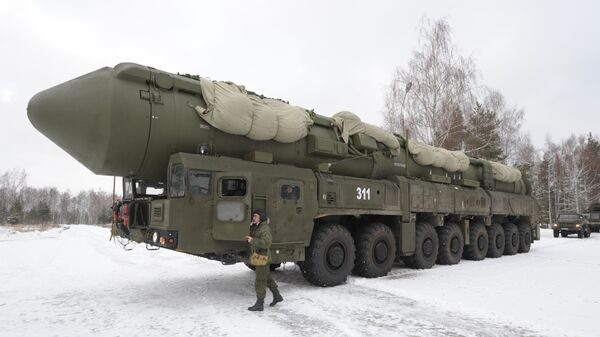It is noted that Sweden will continue its engagement in the processes of nuclear disarmament. Among other things, nuclear weapons states should "lower the readiness levels of their arsenals." Sweden is also poised to participate in future UN negotiations advocating a total ban on nuclear weapons. Additionally, Sweden is expected to engage Russia at the official level by means of dialogue with the Department for Disarmament and Non-Proliferation (NIS) under the Foreign Ministry.
Despite the fact that the leaked documents specifically evaluate the risk of a nuclear attack against Sweden as extremely unlikely, they nevertheless fail to completely rule out crises and incidents involving the use of military force. In the documents by the Foreign Ministry, Sweden is advised to steer clear of "rhetorical escalation" considering the situation in the Baltic Sea Region, where the war of words may contribute to public fears. All in all, Sweden's attitude towards Russia must be characterized by "firmness, coolness and calmness."
"This is very interesting. Western Europe is very vulnerable to nuclear pressure from Putin, yet few Western governments have raised this topic publicly," Tomas Ries, a researcher at the National Defense College, told Aftonbladet.
According to him, Russia has modernized its nuclear arsenal several times since the end of the 90s. In regards to the Baltic Sea Region security, Sweden is most worried about Russia's Baltic Fleet, several of whose vessels are potentially capable of carrying nuclear weapons.
Historically, Sweden made an impressive U-turn considering its attitude towards nuclear weapons. After World War II, Sweden pursued a nuclear weapons program to defend itself against alleged assault from the Soviet Union. The clandestine program ran under various Social Democratic governments from 1945 to 1972 under the guise of a civilian research at the Swedish National Defense Research Institute (FOA). In 1968, Sweden signed the Non-Proliferation Treaty and subsequently began closing the program.
Of late, the fictitious Russian "threat" has been utilized by the Swedish Armed Forces to secure more budget allocations. So far, Sweden's recently updated "wish list" includes ten Gripen E fighter jets, new submarines, cruise missiles, an extended lifetime for corvettes, radio equipment to the Home Guard, new radars, school aircraft, combat vehicles, transport aircraft and others.




